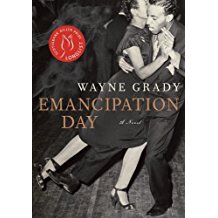It is always wonderful when Matthew comes prepared to tell us about the book that he is reading. This year he was bubbling over about "Reality is Not What It Seems" by Carlo Rovelli. Rovelli is an Italian theoretical physicist who is the founder of the loop quantum gravity theory.
 This book was recommended to Matthew by a friend of a friend, who lives in Belgium, but attends University of British Columbia, where Matthew is hoping to study engineering in 2 years.
This book was recommended to Matthew by a friend of a friend, who lives in Belgium, but attends University of British Columbia, where Matthew is hoping to study engineering in 2 years.Matthew was excited to tell us about time being different on earth than in space. He is very interested in space and would one day like to work for NASA.
I do love covers and this cover tells me that the content of this book is in the cosmos- over our heads. It talks about these three questions:
1. What are time and space made of?
2. Where does matter come from?
3. What is reality?
Rovelli pushes beyond what is known from Aristotle, Einstein, etc. and takes you on a journey towards new discoveries.
Matthew can't wait to get in on that journey. And we will avidly follow his journey.
















































